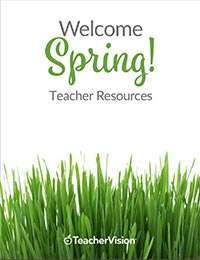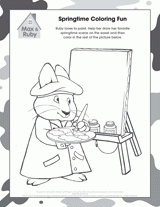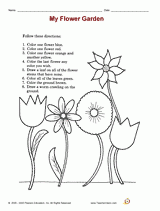Use a School Readiness Activity to provide early language thinking experiences for preschool children that will prepare them to do well in the early grades.
Grades:
Subjects:
Block Area Discussion
Purpose/Skills- To describe actions and objects expressively and fluidly
- To practice conversational speaking
- To respond appropriately to questions
Materials
Blocks, small figures of people and animals
Vocabulary
build
shapes
Literature Suggestion
Read The Three Little Pigs by James Marshall (or another picture-book version of the story), and books about blocks or shapes.
Warm-Up
- Look at the illustrations in the book.
- Invite children to talk about the houses that the three pigs built.
- Ask children what they could build using the blocks in the room (houses, buildings on their street, neighborhood buildings such as a bank, stores, restaurants, etc.).
- For English Language Learners: teach the names of the shapes of the blocks.
- Ask children to work together in small groups on block structures.
- Instruct them to build a big building, neighborhood, town, or city. Give them the option of using animal and people figures. Give each group space to work for at least 10 minutes.
- Encourage talking about what they are doing, and allow children time to develop relaxed conversations. Ask questions such as, How tall will your building be?
- When children in a group have made progress building, ask them to take a break to explain what they are doing. Have children from other groups stop their work and listen.
- Ask children to describe what they built. Welcome both descriptions of the structures and imaginary talk about their use. When necessary, prompt children with questions.
Enrichment
Continue the activity on another day or series of days, and invite the children to create new and more complex structures- perhaps limited to blocks of a specific size or shape. Have them tell the group about what they built.
- Proficient - Child discusses the task with other children, responds to questions, and uses increasingly complex and varied language to describe the block structure.
- In Process - Child struggles with attempts to use increasingly complex and varied language to respond to questions.
- Not Yet Ready - Child does not participate or cannot not yet talk appropriately with other children or adults about the task.












